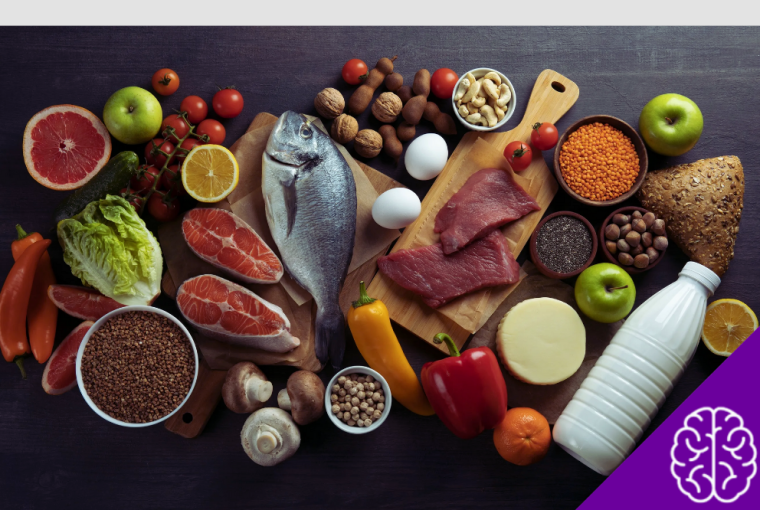Aging is a life stage coveted by virtually all of us, but it’s not just about accumulating age, it’s also about reaching old age with quality of life. And thinking about that, do you know what the best foods for health are?
If you haven’t pondered this question or are curious about the topic, it’s time to think about it. After all, the choice of the right foods plays a fundamental role in our life expectancy and in promoting a healthy life over the years.
Therefore, in this guide from the Insight Factory website, we will show you how the science of nutrition is essential for us to learn more about foods that offer significant benefits to our health. Let’s check it out!
List of the best foods for health
A balanced and healthy diet is essential for our physical and mental well-being daily and over the years. In practice, the foods we consume provide the necessary nutrients for our body to function properly, preventing diseases and promoting health.
So, see below the 10 best foods for health, based on scientific research!
1. Dark leafy green vegetables
Studies show that dark leafy green vegetables such as spinach, kale, arugula, watercress, and chard are rich in vitamins, minerals, and antioxidants.
These components are associated with a reduced risk of heart diseases, type 2 diabetes, and even certain types of cancer.
2. Omega-3 rich fish
Fish is a good source of protein, healthy fats, vitamins, and minerals, and species like salmon, sardines, and tuna are even better, as they are exceptional sources of omega-3 fatty acids.
Research indicates that these fatty acids are related to cardiovascular health, helping reduce triglyceride levels, blood pressure, and preventing heart diseases.
Additionally, fish is a source of protein, an essential nutrient for muscle construction and maintenance. In other words, including more fish rich in omega-3 fatty acids can help reduce the risk of heart diseases, stroke, and other chronic conditions.
3. Red berries
Fruits like strawberries, raspberries, blueberries, and blackberries are rich in antioxidants, such as vitamin C. These antioxidants help protect cells from damage caused by free radicals.
Therefore, including more red berries in your diet can provide an improvement in the quality of life, as studies suggest that regular consumption of these fruits is associated with improved cognitive health, reduced risk of neurodegenerative diseases, and strengthened immune system.
4. Nuts and seeds
Nuts and seeds, such as almonds, chia, and flaxseed, are concentrated sources of essential nutrients, vitamins, and healthy fats.
The healthy fats in nuts and seeds help reduce LDL (bad) cholesterol and increase HDL (good) cholesterol. The fibers in nuts and seeds aid digestion and healthy weight loss.
Therefore, research points out that the intake of these foods is related to improved heart health, reduced LDL cholesterol, and weight control.
5. Greek yogurt
Greek yogurt is rich in proteins and beneficial probiotics for intestinal health. Studies indicate that regular consumption can improve digestive health, strengthen the immune system, and even help with weight control.
6. Extra virgin olive oil
Extra virgin olive oil is a source of healthy fats, as it is rich in monounsaturated fatty acids. These fats help reduce LDL (“bad”) cholesterol and increase HDL (“good”) cholesterol.
It is also rich in antioxidants that protect cells from damage caused by free radicals.
Additionally, the phenolic compounds in extra virgin olive oil may have anti-inflammatory and anticancer properties.
Thus, research suggests that regular consumption is associated with a reduced risk of heart diseases, blood sugar control, and benefits for brain health.
7. Beans and legumes
The legume class, such as beans, lentils, and chickpeas, is rich in fiber, proteins, and essential nutrients such as iron and potassium.
Therefore, studies indicate that a diet rich in these foods favors improved glycemic control, regulation of blood pressure, reduced risk of heart diseases, and promotion of digestive health.
8. Carrots and root vegetables
Carrots, sweet potatoes, and beets are rich in antioxidants and fiber. Research suggests that these vegetables are associated with eye health, blood sugar control, and improvement of skin health.
9. Oats
Oats are an excellent source of soluble fibers, associated with the reduction of LDL cholesterol and weight control. Studies indicate that regular inclusion of oats in the diet can contribute to cardiovascular health.
Oats are a whole grain rich in soluble fibers, where studies show that these are associated with the reduction of LDL cholesterol and weight control (they help regulate the intestines).
In addition, oats are an excellent source of B-complex vitamins, which are important for energy metabolism and nervous system health.
Oats are also rich in minerals such as magnesium, phosphorus, and zinc, which help improve muscle and bone health and the immune system.
10. Green tea
Green tea is a beverage rich in catechins, powerful antioxidants associated with various health benefits.
This tea is also a source of caffeine, which helps improve alertness and physical performance.
Additionally, the L-theanine in green tea has calming properties and can improve cognitive function.
Therefore, research suggests that regular consumption of green tea can assist in weight loss, improve heart health, and even have anticancer properties.
Liked learning about the best foods for health?
The choice of foods based on scientific research can be a valuable guide to promoting health and well-being.
Integrating these top 10 foods for health into your daily diet can provide lasting benefits, contributing to a healthier and more balanced life.
However, it’s always recommended to consult with a healthcare professional or nutritionist for personalized guidance!


